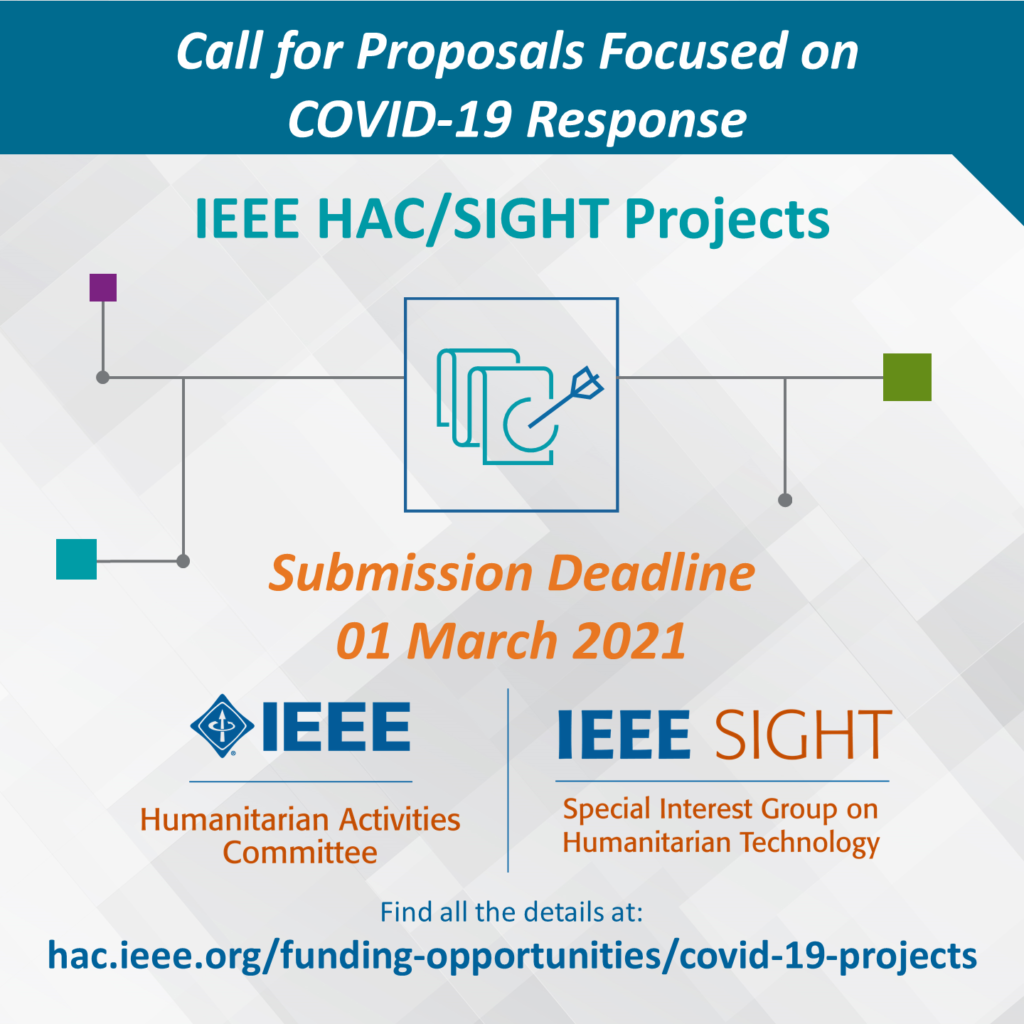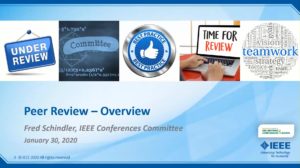Some of the Milestones approved in Region 8
Recently approved Milestones in Region 8 include
[1] Fermi’s contribution to semiconductor statistics, Florence, Italy.
[2] Dadda’s multiplier, Milan, Italy.
[3] Germany’s first broadcast transmission, Koenigs Wuesterhausen, Germany.
Several more are in progress, including one jointly with Poland and Germany: the Czochralski method of crystal growth, 1916, which it is proposed will be at Berlin, Warsaw and Kcynia (e.g. three plaques altogether for the same Milestone).
The first History Milestone in Sweden (Gotland HVDC link, 1954) was installed in May 2017.
Previous approvals:
Stereo Sound recording and reproduction inventions in early 1930s by Alan Blumlein. Plaque installed at the Abbey Road studios in London. The dedication ceremony was in Studio Two on 1st April 2015, with an associated technical seminar and a lecture about Alan Blumlein. The unveiling was done by IEEE President Howard Michel and Isabel Garvey, Managing Director of Abbey Road Studios, with an attendance of over 100 people, including many of the engineers with the skills which keep Abbey Road at the forefront of the world movie, video and sound recording business.
‘Zenit’ L3 3D Pulsed Radar at Kharkiv, Ukraine.
This has been approved and it is hoped to have the installation and dedication carried out in mid-2017, by a ceremony jointly at Kiyev and at Kharkiv
First Generation and Experimental Proof of Electromagnetic Waves 1886-1888, at Karlsruhe, Germany
The pioneering work of Heinrich Hertz has been honored with an IEEE Milestone. Hertz successfully achieved the “” at Technische Hochschule Karlsruhe, Germany, now the Karlsruhe Institute of Technology (KIT).
The Milestone plaque is at the original site of Hertz’s experiments. On Friday 5th December 2014, IEEE President Roberto de Marca and KIT Vice President Detlef Löhe unveiled the plaque. The host, Dean of the Department of Electrical Engineering and Information Technology Thomas Leibfried, welcomed the numerous attendees, which included Region 8 Director Martin Bastiaans, Germany Section Chair Axel Richter and the Milestone nominators Dieter A. Mlynski, IEEE Life Fellow from Circuits and Systems Society, and Werner Wiesbeck, IEEE Life Fellow from Microwave Theory and Techniques Society.
In his address, Martin Bastiaans referred to the 50 year history of Region 8 and of the Germany Section. He emphasized that this second milestone in Germany is the 150th worldwide and encouraged further proposals for historic achievements, especially in Germany.
During the 19th century the two incompatible theories of electromagnetic phenomena opposed each other: the long-range force-based interpretation, especially on the European continent, and Faraday’s conception of a short-range field theory, which Maxwell converted into mathematical form, the Maxwell’s equations. From 1885 to 1888, after the 1879 suggestion of Hermann von Helmholtz, Hertz carried out the practical work to verify Maxwell’s theoretical predictions.
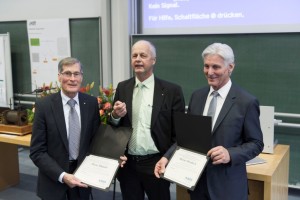
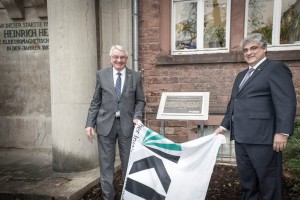
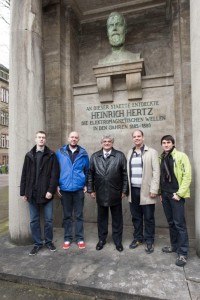
Another Milestone is being planned at Karlsruhe, for Otto Lehman’s invention of Liquid Crystals in 1889.
First Public Demonstration of Television, 1926 in London, England,
The plaque is installed at Bar-Italia, Frith Street, Soho, London and was unveiled on 26th January 2017, by IEEE President Karen Bartleson and Iain Logie Baird, a grandson of John Logie Baird.
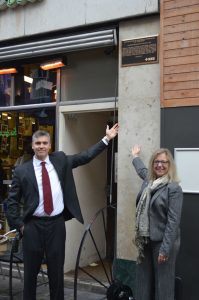
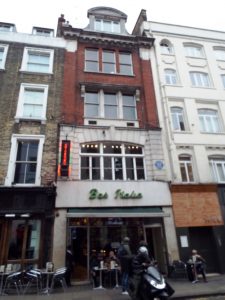
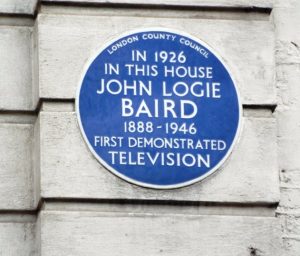
On the following day, an all-day technical symposium was held at the Royal Institution of Great Britain, with the title:
THE EVOLUTION OF TELEVISION FROM BAIRD TO THE DIGITAL AGE
This included talks, demonstrations, and some exhibits and poster displays, and was attended by a large number of people from many backgrounds on an ‘invitation only’ basis.
A milestone proposal is being finalised to recognise the developments in amorphous silicon switches, which led to the feasiblity of LCD flat screen displays now used in TV, computers, phones, etc. This milestone will be at Dundee University, Scotland.
Several other possible milestones are being actively discussed within the framework of the Life Members Activity Group of the UK and Ireland Section
Also under discussion, there could be History Milestones for Euler’s invention of Graph Theory, and for Kirchhoff’s Laws, both of which had a huge impact on many topics within the scope of IEEE. The location in this case is clear: the town of Königsberg – now Kaliningrad. A complication is that at the time, it was part of Germany and now is part of Russia – so whose Milestones would they be?
Tony Davies, 2015 January 6th, updated 2017 February 19th
Heinrich Hertz Award:
At one time, from 1989 to 2001, IEEE had a Heinrich Hertz Medal which was funded from Region 8. However, that award has now been discontinued.
In 1992, it was awarded to James R. Wait, at a ceremony in King’s College London. I had the privilege of handing the medal to Dr. Wait because I was then Section Chair. Tony Davies, 2015 January 3rd
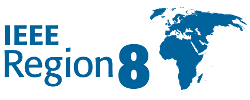






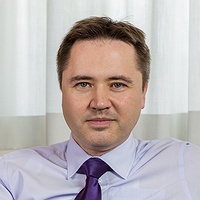 Mislav
Mislav